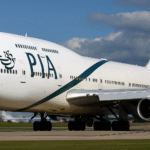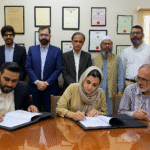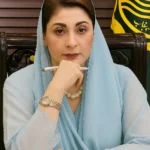The signing of six key MoUs in Dhaka marks a new chapter in the relationship between Pakistan and Bangladesh. Held in the capital city, this important diplomatic development signifies a commitment by both nations to expand cooperation across multiple sectors, including trade, culture, diplomacy, media, and education. The ceremony was overseen by Pakistan’s Deputy Prime Minister and Foreign Minister Ishaq Dar alongside Bangladesh’s Adviser for Foreign Affairs Md Touhid Hossain.
This renewed partnership comes after years of strained ties and highlights a turning point for South Asian diplomacy. Officials described the agreements as not just symbolic but highly practical, with long-term benefits for both nations.
Details of the MoUs in Dhaka
The MoUs in Dhaka include six significant agreements:
-
Visa Abolition for Diplomats and Officials – Eliminating visa restrictions for diplomatic and official passport holders to encourage smoother exchanges between the two states.
-
Foreign Service Academy Cooperation – Linking Pakistan’s Foreign Service Academy with its Bangladeshi counterpart for training, capacity building, and knowledge sharing.
-
News Agency Collaboration – Building media cooperation between Associated Press of Pakistan (APP) and Bangladesh Sangbad Sangstha (BSS).
-
Think Tank Partnership – Connecting the Institute of Strategic Studies Islamabad (ISSI) with Bangladesh Institute of International and Strategic Studies (BIISS).
-
Joint Working Group on Trade – Establishing a platform to boost bilateral trade and resolve challenges.
-
Cultural Exchange Programme 2025–2028 – Promoting art, heritage, and cultural activities across borders.
Together, these six MoUs in Dhaka cover a wide range of sectors, laying the foundation for stronger people-to-people ties and institutional linkages.
READ MORE:
https://freedompakistan.com.pk/ishaq-dar-visit-to-dhaka/
Significance of the Visit
Ishaq Dar’s visit to Bangladesh is the most senior-level Pakistani engagement in over a decade. The last high-profile visit was by Hina Rabbani Khar in 2012. Against this backdrop, the signing of MoUs in Dhaka demonstrates a clear intention to rebuild trust.
Dar emphasized during his meetings that Pakistan holds “fraternal sentiments” toward Bangladesh and wishes to build forward-looking relations. The tone of the talks was reported as constructive and cordial, signaling a genuine willingness to move beyond past tensions MoUs in Dhaka.
Economic and Trade Dimensions
One of the most important outcomes of the MoUs in Dhaka is the creation of a Joint Working Group on Trade. This mechanism aims to remove obstacles to bilateral commerce, increase market access, and promote direct business interactions.
Already, Pakistan and Bangladesh have taken steps toward expanding trade. Earlier this year, the two nations launched the first-ever direct sea trade link, and discussions are underway to begin direct flights. By reinforcing these efforts through the MoUs in Dhaka, both sides are expected to see substantial growth in economic activity.
Experts believe enhanced trade could lead to new opportunities in textiles, agriculture, and technology, sectors where both countries have significant expertise.
Diplomatic and Security Cooperation
Beyond trade, the MoUs in Dhaka also focus on diplomatic training and foreign policy coordination. This includes collaboration between foreign service academies and think tanks, allowing both nations to build stronger diplomatic capacity.
Defence ties are also quietly improving. In January, a senior Bangladeshi general visited Pakistan, signaling a thaw in military-to-military engagement. Officials stress that while defence is not explicitly included in the current MoUs in Dhaka, the agreements create an environment of trust that could lead to further cooperation in the future.
Cultural and Social Impact
The MoUs in Dhaka are not limited to high-level diplomacy; they also touch the lives of ordinary citizens. The Cultural Exchange Programme (2025–2028) is expected to showcase Pakistani and Bangladeshi music, art, and literature, reminding people of shared cultural roots and centuries-old traditions.MoUs in Dhaka.
This focus on cultural diplomacy reflects a belief that sustainable ties are built not just by governments but by people. By connecting communities, the MoUs in Dhaka strengthen the foundation of friendship between both nations.
Regional and Global Context
The signing of MoUs in Dhaka also has regional implications. With the revitalization of SAARC being discussed during the meetings, Pakistan and Bangladesh’s cooperation could help revive regional integration in South Asia.
Additionally, both countries jointly addressed pressing international issues such as the situation in Palestine and the plight of Rohingya refugees. Their aligned stance on these humanitarian matters underscores the potential for closer coordination in multilateral forums.MoUs in Dhaka
Observers note that India is closely monitoring these developments. Since the ouster of former Bangladeshi Prime Minister Sheikh Hasina, India has been uneasy about Dhaka’s shifting diplomatic alignments. However, both Pakistan and Bangladesh have made it clear that the MoUs in Dhaka are focused on mutual benefits, not rivalry with third parties.
Political Symbolism
The symbolism of signing MoUs in Dhaka goes beyond the agreements themselves. For years, relations between the two nations were overshadowed by political sensitivities and historical grievances. This event is a declaration that both countries are ready to turn the page.
Dar’s meetings with Bangladeshi leaders, including commerce officials and policymakers, reinforced the idea of building a cooperative and forward-looking partnership. The lunch hosted in his honor and subsequent receptions were seen as gestures of goodwill and respect.
Challenges Ahead
While the MoUs in Dhaka are a promising start, challenges remain. Political instability in Bangladesh, economic pressures in Pakistan, and potential external influences could affect the pace of implementation.
Moreover, infrastructure, logistical barriers, and bureaucratic red tape may slow progress on trade and cultural exchanges. For the MoUs in Dhaka to succeed, both sides will need to ensure sustained commitment and follow-through.
Conclusion
The six MoUs in Dhaka represent a landmark in Pakistan-Bangladesh relations, offering a roadmap for cooperation in diplomacy, trade, culture, and education. By signing these agreements, both nations have taken an important step toward healing old wounds and building a stronger, more collaborative future.
For Pakistan, it is an opportunity to reconnect with a vital South Asian partner. For Bangladesh, it is a chance to diversify alliances and enhance regional standing. Together, through the MoUs in Dhaka, both countries can forge a new narrative of partnership, resilience, and shared progress.












